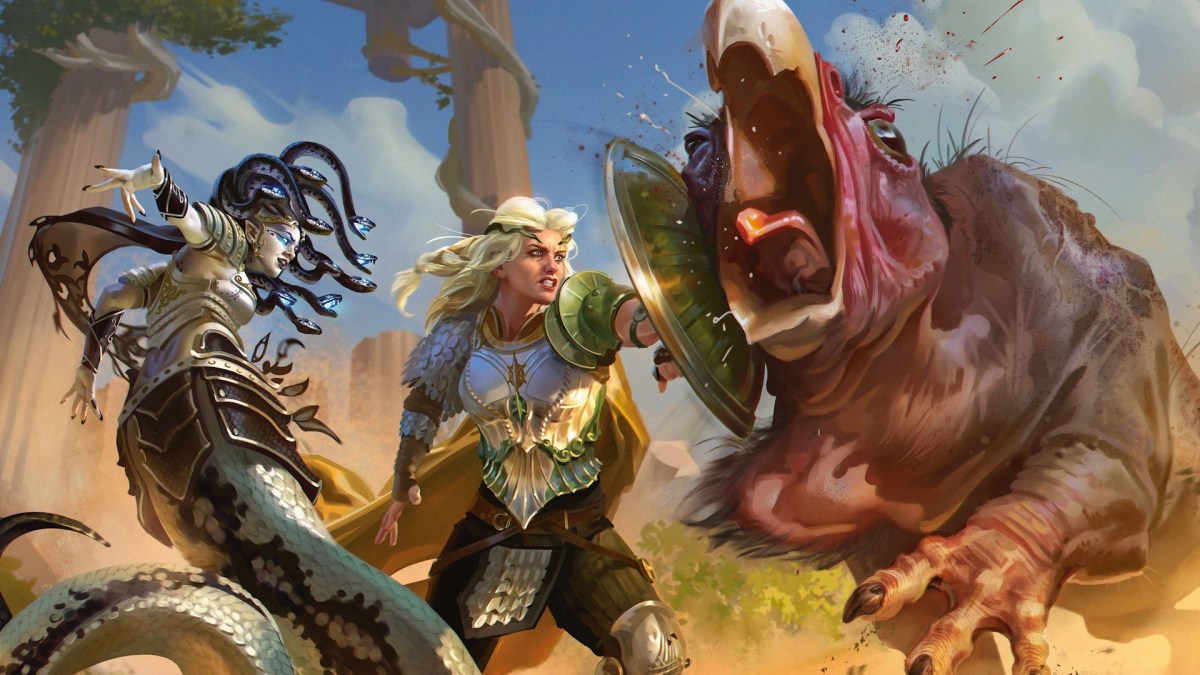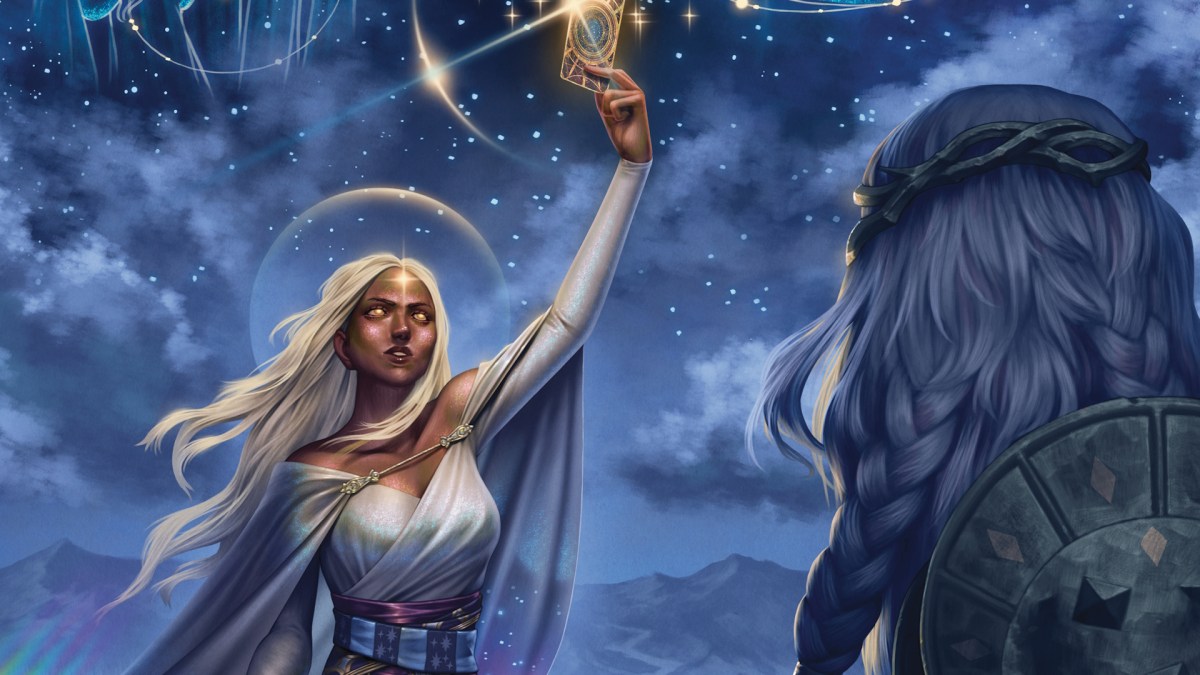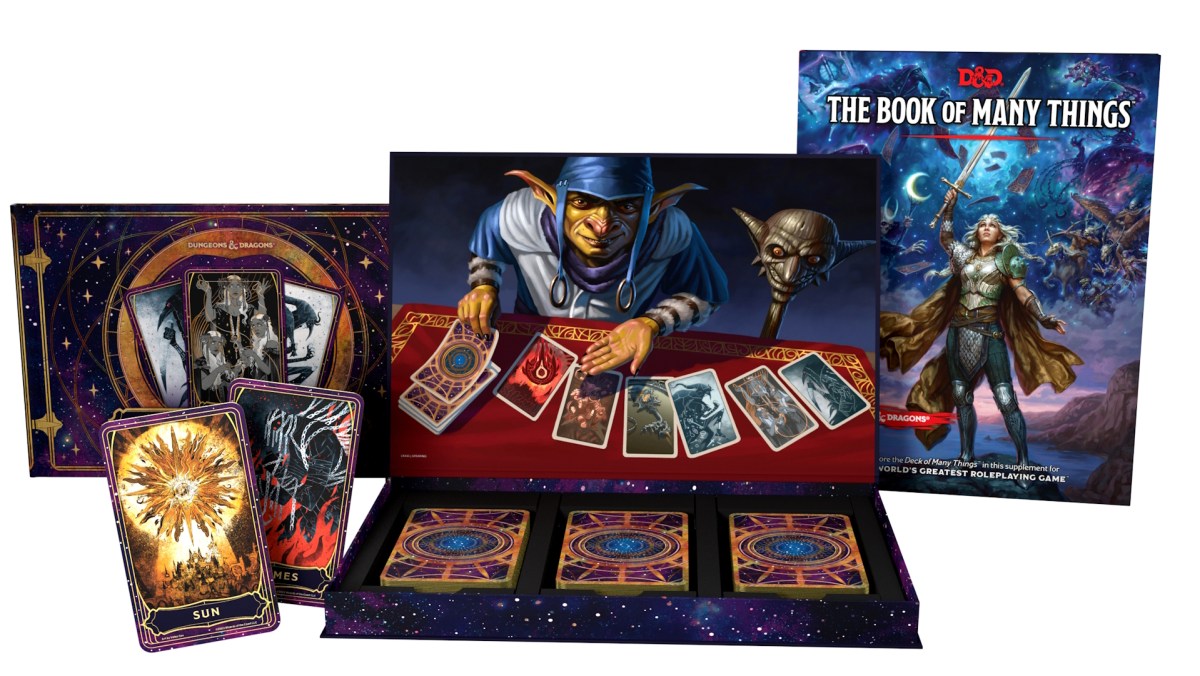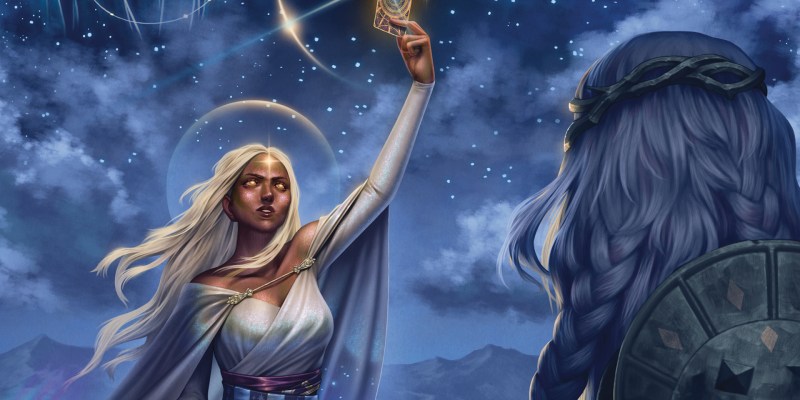Many long-time Dungeons and Dragons players have a horror story about the deck of many things. As one of the oldest magic items in the core DnD rules, the deck has been famous for decades as a nearly guaranteed way to derail a campaign. Any card drawn from the deck can abruptly kill, hamper, enrich, empower, or imprison a character. As it’s remained mostly unchanged since its debut in 1975, the deck of many things provides an enduring snapshot of the earlier, far more lethal editions of DnD.
In news that will likely fill old-school tabletop gamers with dread, the next first-party sourcebook for DnD is based entirely around the deck. In The Book of Many Things, Wizards of the Coast plans to explore the origins of the deck, how it fits into the multiverse of D&D, and offer ways to use it as the driving force of a D&D campaign. It’s been written as a “toybox book,” in lead designer Jason Tondro’s terms, full of new ideas, monsters, items, and features for both player characters and Dungeon Masters to incorporate into their games.
Related: Best Alternatives to DnD

The Book of Many Things also features the debut of Asteria (above image, center), a princess who became a paladin, and the first canonically autistic signature character in the history of DnD. She’s the brainchild of Wizards game designer Makenzie de Armas (Keys from the Golden Vault, Critical Role: Call of the Netherdeep) who discussed the creation process behind Asteria at a virtual press event held by Wizards of the Coast on Oct. 12.
“The story deals with a lot of themes that are central to the idea of the deck of many things,” de Armas said. “Themes of fate and destiny and looking at the story the world has defined for you, and of not only refusing it, but taking that story into your own hands and rewriting it on your own terms. As we were writing it, it resonated really deeply with my own experience as an autistic creator, as someone who has had to deal with people’s expectations of who I am and who I am supposed to be based on their assumptions of my identity.”
Many recent DnD sourcebooks from Wizards, such as Glory of the Giants, feature interjections from named characters throughout the text, to provide context, perspective, or just gratuitous sarcasm. In the new Planescape book, for example, that role is filled by Morte from Planescape: Torment. In The Book of Many Things, Asteria serves as its informal narrator, as well as one of the protagonists of the book’s story arc.
“I am very blessed to have not only helmed Asteria’s story creation, but to have also provided her voice in the many notes that are scattered throughout [The Book of Many Things],” de Armas said, “letting my lived experience as an autistic individual inform how Asteria’s autism presents. [She’s] represented as a full and robust individual who is more than just how her brain processes information.”
de Armas and Tondro also co-created a new origin story for the deck of many things that’s specifically for the 5th edition of DnD. (The deck has had a couple of other origins over the years; the Shadows of Undrentide expansion for Neverwinter Nights, for example, establishes the deck as being a creation of the fallen empire of Netheril.)
In the original version of the deck, only one of its 22 cards has a proper name. The Eurayle card is marked with a “medusa-like visage,” and drawing it inflicts a relatively mild but permanent curse that’s nearly impossible to remove.
Related: 6 Tips for New DnD DMs

That led de Armas and Tondro to wonder who Eurayle was, and build a character around that. The Book of Many Things‘ Eurayle is a medusa druid, Asteria’s adopted sister and adventuring companion, and the person directly responsible for the creation of the original deck. In the 5th-edition origin, Eurayle directly petitioned a goddess of fate in order to save Asteria’s life. That goddess, Istus, did so by drawing constellations from the sky (above image) to create the original cards in the deck of many things.
In addition to exploring the deck’s origins – which again, are explicitly multiple choice – the Book of Many Things includes an assortment of alternate cards, new versions of the deck, over 50 new magical items, and a new set of rules where a Dungeon Master can use the deck to randomly generate ideas for an adventure. This involves laying out the cards in an order that’s deliberately reminiscent of a “Celtic cross” tarot spread, just in case you’ve got an older relative who still thinks DnD is a gateway drug to learning real magic.

The Book of Many Things is scheduled for release in both physical and digital editions on Nov. 11 at an MSRP of $99.99, with digital early access starting Oct. 31. The physical set includes a sourcebook, a deck of 66 cards with a custom carrying case, and a reference book for the cards and their effects.
As with all of Wizards of the Coast’s recent first-party books, The Book of Many Things will ship with two covers, the latter of which is a collector’s edition meant to be exclusive to brick-and-mortar game stores.
